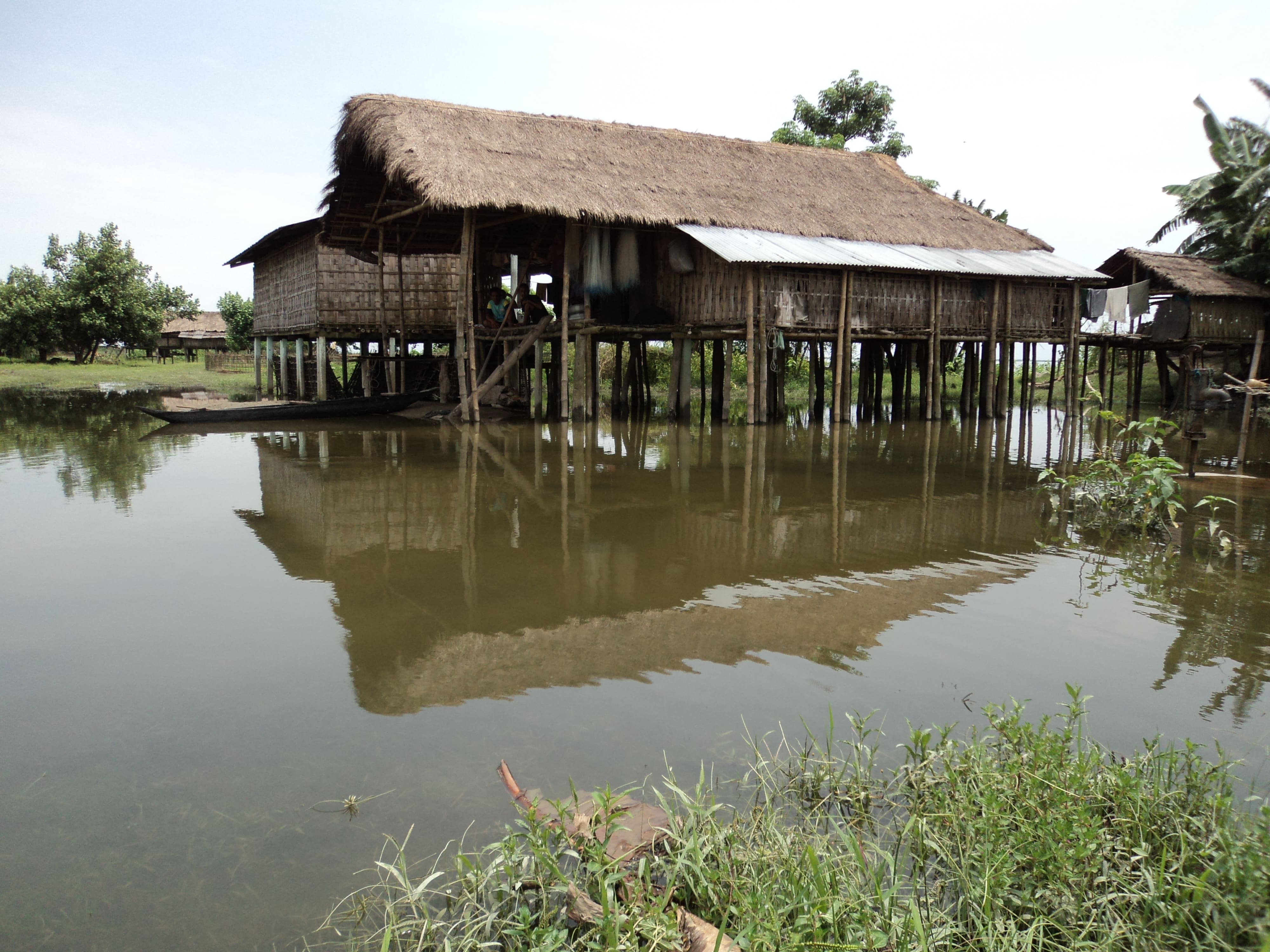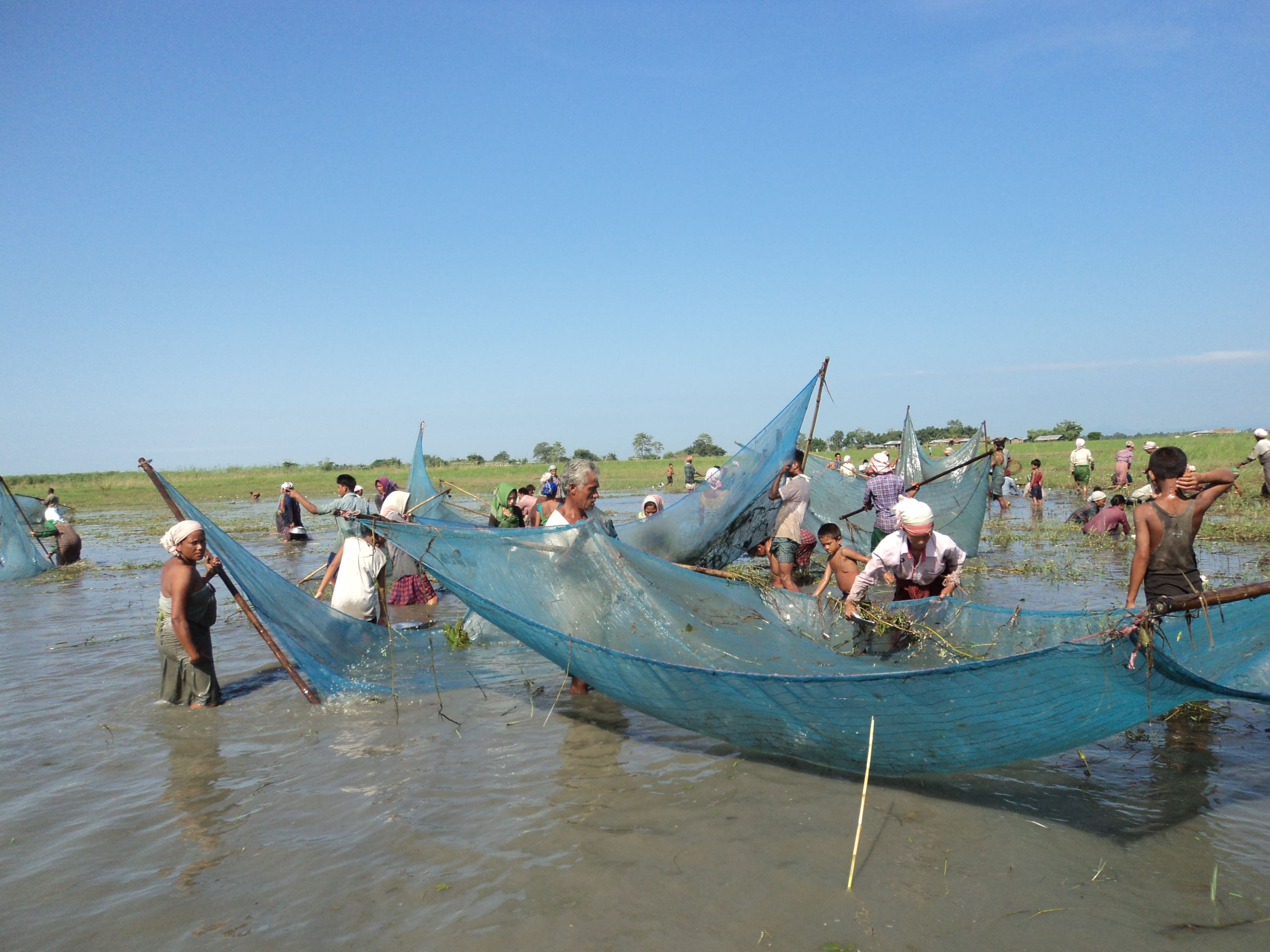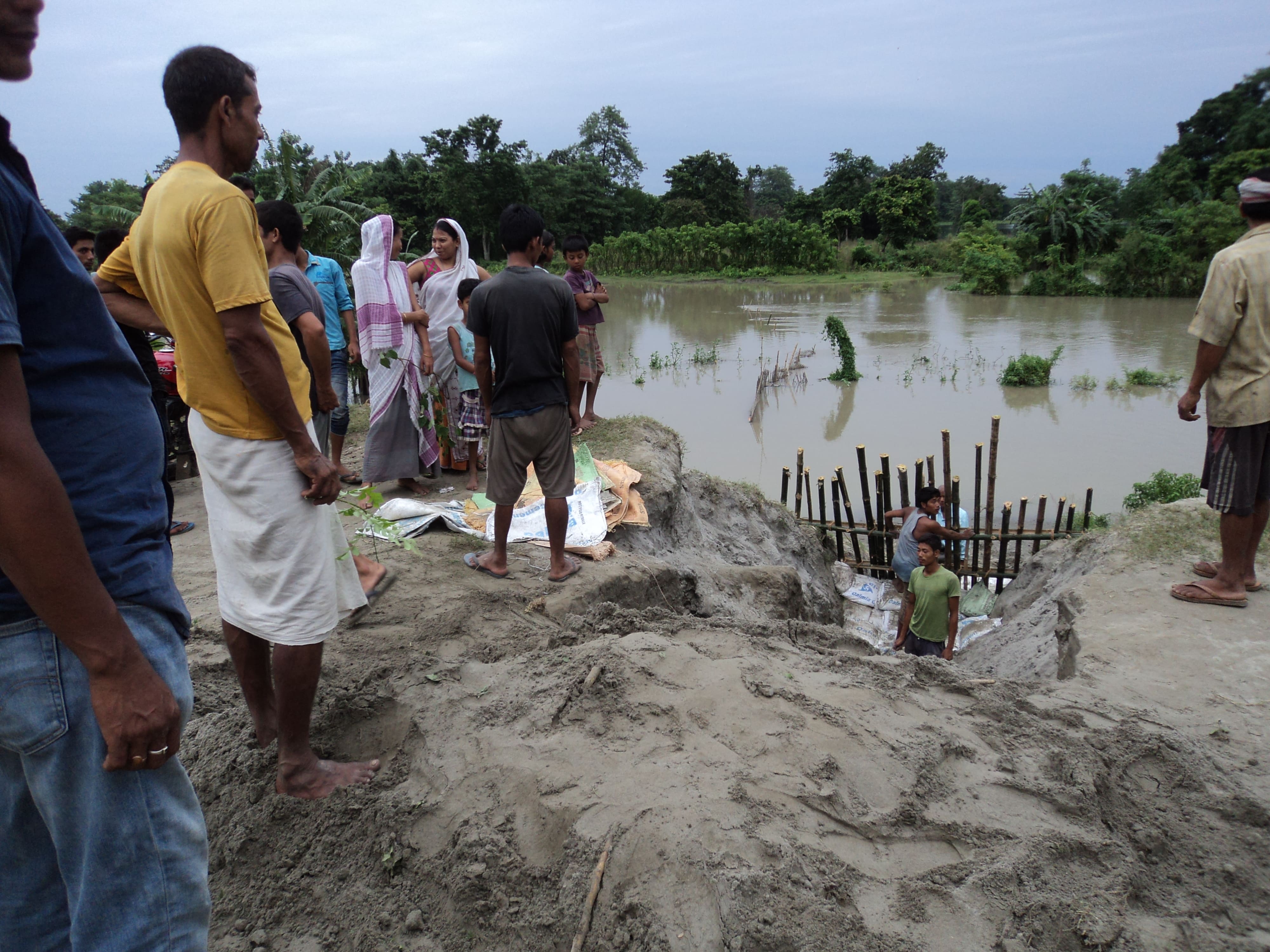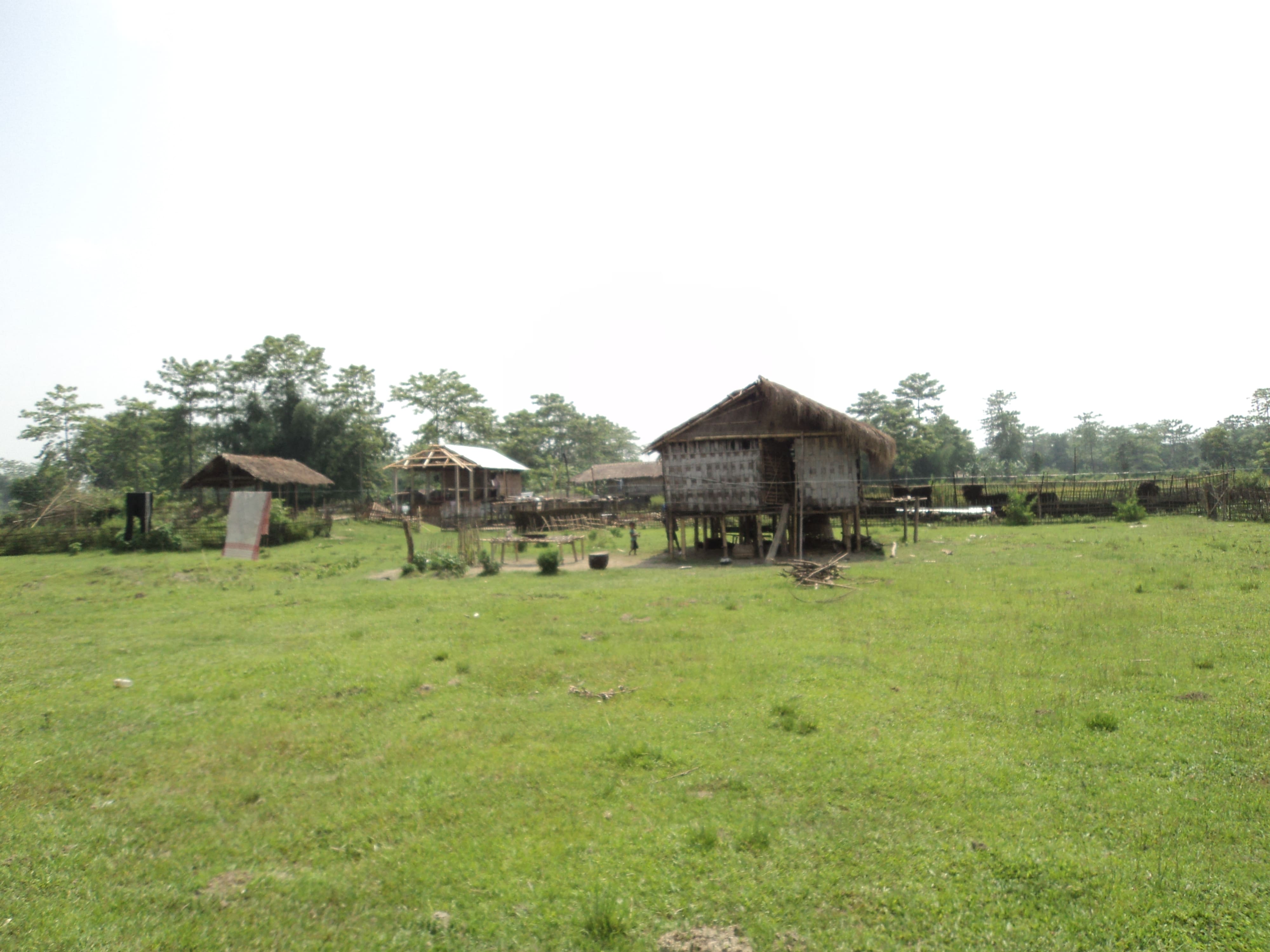- Loss and Damage Research Observatory
- admin@lossanddamageobservatory.org

Assistant Professor (Guest)
Department of Sociology, Jesus and Mary College, University of Delhi

Areas of Expertise:
Nature of engagement:
Overview
As a sociologist with a PhD specializing in the political ecology of floods, hydro-social relations, Climate Change, my professional journey explores the complex interactions between water systems and societal dynamics. My research critically examines how socio-political factors exacerbate flood impacts on marginalized communities, yielding profound insights into environmental justice and resilience. Notable achievements include a published paper in a reputed journal and presentations at prestigious international conferences including at Oxford University. I possess expertise in conducting ethnographic research, policy analysis, and socio-environmental impact assessments. My experience involves navigating intricate socio-political landscapes and crafting innovative climate adaptation strategies.
""
Saleemul Huq Memorial Scholarship: Project Update

2024-09-06 Loss of ecosystem and biodiversity
Flooding and erosion have long been inherent features of Majuli Island due to th...Read more

Category: Loss of ecosystem and biodiversity
Region: Asia
Country: India
Village: Majuli island District, Assam
Description: Flooding and erosion have long been inherent features of Majuli Island due to the Brahmaputra River’s dynamics. Recent trends, however, reveal that these phenomena have become increasingly erratic and unpredictable, exacerbated by irregular monsoon patterns driven by climate change, as well as factors such as earthquakes and infrastructural developments. Over the past 50 years, riverbank erosion has dramatically reduced the island’s size from approximately 1,200 sq. km to 400 sq. km, resulting in significant economic and ecological losses. This environmental degradation has disproportionately affected the Indigenous Mising community, who inhabit the island’s transient chapori regions, in terms of both economic and non-economic losses. The loss of forests and aquatic habitats has led to a drastic decline in biodiversity, severely impacting essential resources such as forest cover, medicinal plants, and wetland species, which the Mising community relies on for both their economic sustenance and cultural practices. Furthermore, this ecological loss and damage threaten the traditional practices of the Mising such as the construction of Marung (youth dormitories), the Porag festival, and Datgang (death rituals), jeopardizing their cultural heritage. This project critically examines the dual impacts of climate-induced flooding and erosion on Majuli Island, focusing on the Mising community. It explores the significant loss of biodiversity and cultural heritage, and assesses the adaptation strategies employed by the Mising. The study aims to provide sociological insights into how environmental degradation disrupts traditional practices and community cohesion, highlighting the need for integrated strategies that support both ecological sustainability and cultural preservation amidst climate change.

2024-09-06 Loss of ecosystem and biodiversity
Flooding and erosion have long been inherent features of Majuli Island due to th...Read more

Category: Loss of ecosystem and biodiversity
Region: Asia
Country: India
Village: Majuli island District, Assam
Description: Flooding and erosion have long been inherent features of Majuli Island due to the Brahmaputra River’s dynamics. Recent trends, however, reveal that these phenomena have become increasingly erratic and unpredictable, exacerbated by irregular monsoon patterns driven by climate change, as well as factors such as earthquakes and infrastructural developments. Over the past 50 years, riverbank erosion has dramatically reduced the island’s size from approximately 1,200 sq. km to 400 sq. km, resulting in significant economic and ecological losses. This environmental degradation has disproportionately affected the Indigenous Mising community, who inhabit the island’s transient chapori regions, in terms of both economic and non-economic losses. The loss of forests and aquatic habitats has led to a drastic decline in biodiversity, severely impacting essential resources such as forest cover, medicinal plants, and wetland species, which the Mising community relies on for both their economic sustenance and cultural practices. Furthermore, this ecological loss and damage threaten the traditional practices of the Mising such as the construction of Marung (youth dormitories), the Porag festival, and Datgang (death rituals), jeopardizing their cultural heritage. This project critically examines the dual impacts of climate-induced flooding and erosion on Majuli Island, focusing on the Mising community. It explores the significant loss of biodiversity and cultural heritage, and assesses the adaptation strategies employed by the Mising. The study aims to provide sociological insights into how environmental degradation disrupts traditional practices and community cohesion, highlighting the need for integrated strategies that support both ecological sustainability and cultural preservation amidst climate change.

2024-09-06 Loss of ecosystem and biodiversity
Flooding and erosion have long been inherent features of Majuli Island due to th...Read more

Category: Loss of ecosystem and biodiversity
Region: Asia
Country: India
Village: Majuli island District, Assam
Description: Flooding and erosion have long been inherent features of Majuli Island due to the Brahmaputra River’s dynamics. Recent trends, however, reveal that these phenomena have become increasingly erratic and unpredictable, exacerbated by irregular monsoon patterns driven by climate change, as well as factors such as earthquakes and infrastructural developments. Over the past 50 years, riverbank erosion has dramatically reduced the island’s size from approximately 1,200 sq. km to 400 sq. km, resulting in significant economic and ecological losses. This environmental degradation has disproportionately affected the Indigenous Mising community, who inhabit the island’s transient chapori regions, in terms of both economic and non-economic losses. The loss of forests and aquatic habitats has led to a drastic decline in biodiversity, severely impacting essential resources such as forest cover, medicinal plants, and wetland species, which the Mising community relies on for both their economic sustenance and cultural practices. Furthermore, this ecological loss and damage threaten the traditional practices of the Mising such as the construction of Marung (youth dormitories), the Porag festival, and Datgang (death rituals), jeopardizing their cultural heritage. This project critically examines the dual impacts of climate-induced flooding and erosion on Majuli Island, focusing on the Mising community. It explores the significant loss of biodiversity and cultural heritage, and assesses the adaptation strategies employed by the Mising. The study aims to provide sociological insights into how environmental degradation disrupts traditional practices and community cohesion, highlighting the need for integrated strategies that support both ecological sustainability and cultural preservation amidst climate change.
Sociology | PhD
2015-11-20 - 2022-11-19
My PhD research is an ethnographic study of hydrosocial relations producing the social-ecological landscape of the marginal Mishing community living on the edges of Majuli (one of the largest river islands in the world formed by the Brahmaputra River). The Mishing I studied live and cultivate on sandbars called chapories (also known as chars) that are continually formed, reshaped and eroded by the cycle of annual floods. My research examines the Mishing ways of perceiving, engaging, and Living with Chronic floods and erosion.
Sociology | Master of Arts
2007-08-01 - 2009-08-01
Sociology | Bachelor of Arts
2004-07-01 - 2007-07-01
University Grant Commission (UGC) |
April 1, 2010
The Rajiv Gandhi National Fellowship, awarded by the UGC, supports minority students pursuing MPhil and PhD programs. It provides financial aid for tuition, research, and living expenses, promoting higher education and research while fostering inclusivity and academic excellence.
Indian Council of Social Science Research |
March 30, 2017
The ICSSR Doctoral Fellowship is a prestigious scholarship that supports students pursuing doctoral studies in Indian universities. It provides financial assistance for research expenses and living costs, aiming to advance scholarly research and academic excellence in the social sciences.
New Delhi, India | Assistant Professor (Guest)
2023-04-27 - 2024-05-10
Key responsibilities include teaching fundamental sociology to undergraduate students. Papers taught during the period include Sociology of India, Social and Emotional Learning, Sociological Theories, Social Stratification, Religion and Society. In addition to delivering lectures, I provided individualized tutoring to assist students with assignments, clarify academic doubts, and enhance their skills in academic reading and writing. Additionally, I presented a paper titled “Drifting with the River: A Tale of the Mising on Majuli Island, Assam” at the International Conference on River Islands: Redefining the Anthropocene, hosted by Ashoka University on October 16th and 17th, 2023.
New Delhi, India | Assistant Professor (Guest)
2020-11-23 - 2021-08-04
Key responsibilities included teaching core sociological courses to Post-Graduate students, such as Sociological Thinkers and Academic Reading and Writing. I actively participated in the tutorial program, providing one-on-one support to students with assignments and clarifying doubts. Additionally, I mentored students in academic and career development, including guidance on research projects and professional growth, while also conducting and participating in departmental meetings to discuss curriculum improvements and monitor student progress. Furthermore, during this period I presented a paper titled “Drifting with the River: Flood Social Ecology of the Mishing on Majuli Island, Assam” at the National Seminar on Tribes: Learning and Unlearning Tribal Culture, organized by Janki Devi Memorial College, DU, in collaboration with Mahatma Gandhi Government College and Pondicherry University, on December 9th and 10th, 2021.

Mishing Chang ghar
Photo Credit: - Photo taken by the author, July 2016, Majuli Island
The chang ghar is a traditional stilt house in Mishing villages, built on bamboo...

Mishing Community Fishing
Photo Credit: - Photo taken by the author, August 2016, Majuli Island
Community fishing was central to Mishing culture, with tulubs and temporary wate...

Panicked villagers are desperately closing the breached embankment
Photo Credit: - Photo taken by the author, July 2016, Majuli Island
Embankment breaches on Majuli Island cause significant erosion, leading to land ...

Chapori /Char land
Photo Credit: - Photo taken by the author, November, 2016
Chapori, or char, are landmasses in the Brahmaputra River that emerge and vanish...
